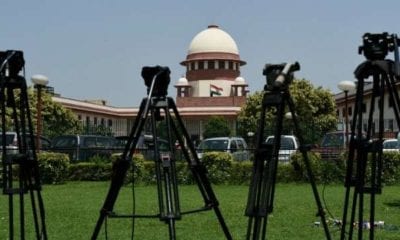Asia
A Game of Thrones in Pakistani Politics

Supreme Court of Pakistan has decided to disqualify Prime Minister Nawaz Sharif. This action confirms the Pakistani ideal that a politician can engage in corruption only if he does not challenge the country’s judiciary.
During the decade of 90s, civilian Prime Ministers who failed do as ordered were dismissed by the President by the power bestowed to him by the Article 58-2(b) of the Constitution. After the dismissal of Benazir Bhutto for two times and once of Mr. Sharif, the Article 58-2(b) of the Constitution was removed. This action cleared the path for General Pervez Musharraf’s military coup in 1999. Nowadays, Articles 62 and 63 of the Constitution have been cited as the means for the establishment to keep an eye on the politicians.
The Supreme Court has found Mr. Sharif in violation of Article 62(1)(f) that demands that members of Parliament to be “sagacious, righteous, non-profligate, honest and Ameen”. “Ameen”, means ‘the keeper of trust.’ It is one of the attributes of Prophet Muhammad, which is a very hard standard to meet for any Muslim.
The Pakistani Supreme Court is acting similar to Iran’s Guardian Council, which disqualifies politicians if they are not sufficiently dedicated to Islamic values.
If any convincing proof of corruption had existed, a trial would have taken place. But in the last seventy years, each and every Pakistani Prime Ministers have either been assassinated, dismissed from their post, or forced to resign, or deposed in military coups. Mr. Sharif lost the army’s favour when he decided to appear in the matters of foreign and national security policy after becoming the Prime Minister. He was ousted before once by the President and then again by the army chief in a coup. Elected for a third time, now he has been dismissed by the Supreme Court.
This scenario proves the point that Pakistan is far from being a democracy and the powerful sway of the media and influence of the army can place or remove a person from the throne. Mr. Sharif is clearly not a right person for the job but the manner of his removal from office is also not right.








































